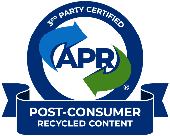PureCycle Signs Antwerp Declaration for a European Industrial Deal
PureCycle supports the Declaration’s objectives to promote industrial innovation and investment, high-quality employment, and climate ambitions.
Orlando, Fla. – PureCycle Technologies, Inc. (Nasdaq: PCT), today, announced that its European affiliate, PureCycle Belgium BV, co-signed the Antwerp Declaration for a European Industrial Deal on March 6, 2024. The Declaration was presented during the European Industry summit: A Business Case for Europe with the goal of continuing to expand Europe’s production industry to support further industrial innovation.
PureCycle supports the Declaration’s objectives to promote industrial innovation and investment, high-quality employment, climate ambitions, and policy development to restore Europe’s economic competitiveness. Working in tandem with the EU’s Green Deal, an Industrial Deal can help secure a prosperous future for all Europeans.
PureCycle’s innovative plastics recycling facility planned for Antwerp’s NextGen District should fulfill many of the Calls-to-Action in the Declaration, especially the need to “enhance infrastructure for recycling” and “provide consumers with low carbon, circular products.”
PureCycle CEO Dustin Olson said, “I had the chance to spend some time with Belgian Prime Minister Alexander De Croo in September. We discussed the future of sustainable innovation and I want to echo his words from our conversation. Europe needs a robust, competitive industry sector to help provide innovative climate solutions to Europe and beyond.”
“We are very pleased with this initiative and the leadership demonstrated by European companies, associations and organizations, many of whom we partner with,” said PureCycle’s VP of European Operations Wiebe Schipper. “It is wonderful to see the number of signatories grow from 73 to over 500 within the first weeks. PureCycle is well positioned and keen to contribute to the objectives of both the European Industrial and the Green Deals.”
PureCycle continues to advance plans for a polypropylene purification plant at the port of Antwerp in Belgium, which will serve as its first recycling facility in Europe. Currently, the Company is focused on engineering, permit applications and securing funding for the project. Once complete, the facility is projected to deliver 86% energy savings and lower greenhouse gas emissions by 61% relative to traditional plastics production.
###
PureCycle Contact
Christian Bruey
cbruey@purecycle.com
+1 (352) 745-6120
About PureCycle Technologies
PureCycle Technologies LLC., a subsidiary of PureCycle Technologies, Inc., holds a global license for the only patented solvent-driven purification recycling technology, developed by The Procter & Gamble Company (P&G), that is designed to transform polypropylene plastic waste (designated as No. 5 plastic) into a continuously renewable resource. The unique purification process removes color, odor, and other impurities from No. 5 plastic waste resulting in an ultra-pure recycled (UPR) plastic that can be recycled and reused multiple times, changing our relationship with plastic. www.purecycle.com
Forward-Looking Statements
This press release contains forward-looking statements, including statements about the outcome of any legal proceedings to which PureCycle is, or may become a party, and the financial condition, results of operations, earnings outlook and prospects of PureCycle. Forward-looking statements generally relate to future events or PureCycle’s future financial or operating performance and may refer to projections and forecasts. Forward-looking statements are often identified by future or conditional words such as “plan,” “believe,” “expect,” “anticipate,” “intend,” “outlook,” “estimate,” “forecast,” “project,” “continue,” “could,” “may,” “might,” “possible,” “potential,” “predict,” “should,” “would” and other similar words and expressions (or the negative versions of such words or expressions), but the absence of these words does not mean that a statement is not forward-looking.
The forward-looking statements are based on the current expectations of PureCycle’s management and are inherently subject to uncertainties and changes in circumstances and their potential effects and speak only as of the date of this press release. There can be no assurance that future developments will be those that have been anticipated. These forward-looking statements involve a number of risks, uncertainties or other assumptions that may cause actual results or performance to be materially different from those expressed or implied by these forward-looking statements. These risks and uncertainties include, but are not limited to, those factors described in the section entitled “Risk Factors” in each of PureCycle’s Annual Report on Form 10-K for the fiscal year ended December 31, 2023 and PureCycle’s Quarterly Reports on Form 10-Q, those discussed and identified in other public filings made with the Securities and Exchange Commission by PureCycle and the following: PCT's ability to obtain funding for its operations and future growth and to continue as a going concern; PCT's ability to meet, and to continue to meet, applicable regulatory requirements for the use of PCT’s ultra-pure recycled (“UPR”) resin in food grade applications (including in the United States, Europe, Asia and other future international locations); PCT's ability to comply on an ongoing basis with the numerous regulatory requirements applicable to the UPR resin and PCT’s facilities (including in the United States, Europe, Asia and other future international locations); expectations and changes regarding PCT’s strategies and future financial performance, including its future business plans, expansion plans or objectives, prospective performance and opportunities and competitors, revenues, products and services, pricing, operating expenses, market trends, liquidity, cash flows and uses of cash, capital expenditures, and PCT’s ability to invest in growth initiatives; the ability of PCT’s first commercial-scale recycling facility in Lawrence County, Ohio (the “Ironton Facility”) to be appropriately certified by Leidos, following certain performance and other tests, and commence full-scale commercial operations in a timely and cost-effective manner or at all; PCT’s ability to meet, and to continue to meet, the requirements imposed upon it and its subsidiaries by the funding for its operations, including the funding for the Ironton Facility; PCT’s ability to minimize or eliminate the many hazards and operational risks at its manufacturing facilities that can result in potential injury to individuals, disrupt its business (including interruptions or disruptions in operations at its facilities), and subject PCT to liability and increased costs; PCT’s ability to complete the necessary funding with respect to, and complete the construction of, (i) its first U.S. multi-line facility, located in Augusta, Georgia; (ii) its first commercial-scale European plant located in Antwerp, Belgium and (iii) its first commercial-scale Asian plant located in Ulsan, South Korea, in a timely and cost-effective manner; PCT’s ability to sort and process polypropylene plastic waste at its plastic waste prep facilities; PCT’s ability to maintain exclusivity under the Procter & Gamble Company license; the implementation, market acceptance and success of PCT’s business model and growth strategy; the success or profitability of PCT’s offtake arrangements; the ability to source feedstock with a high polypropylene content at a reasonable cost; PCT’s future capital requirements and sources and uses of cash; developments and projections relating to PCT’s competitors and industry; the outcome of any legal or regulatory proceedings to which PCT is, or may become, a party including the securities class action a putative class action cases; geopolitical risk and changes in applicable laws or regulations; the possibility that PCT may be adversely affected by other economic, business, and/or competitive factors, including rising interest rates, availability of capital, economic cycles, and other macro-economic impacts; turnover in employees and increases in employee-related costs; changes in the prices and availability of labor (including labor shortages), transportation and materials, including inflation, supply chain conditions and its related impact on energy and raw materials, and PCT’s ability to obtain them in a timely and cost-effective manner; any business disruptions due to political or economic instability, pandemics, armed hostilities (including the ongoing conflict between Russia and Ukraine and the current conflict in the Middle East); the potential impact of climate change on PCT, including physical and transition risks, higher regulatory and compliance costs, reputational risks, and availability of capital on attractive terms; and operational risk.






-1.png)
